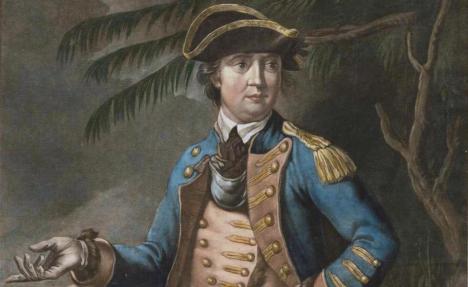Benedict Arnold was a valued member of the Continental Army during the American Revolution. Because of his successful leadership in the American victories at the Battles of Fort Ticonderoga and Saratoga, he was given command of West Point, New York, a fort that became the site of the future United States Military Academy.
Nathaniel Philbrick, in Valiant Ambition: George Washington, Benedict Arnold, and the Fate of the American Revolution writes that Arnold was “an immensely charismatic presence on the battlefield.” He also observes that “there were few officers in either the American or the British Army who possessed his talent of almost instantly assessing the strengths and weaknesses of the enemy.”
Nevertheless, Arnold was also, as Philbrick asserts, prickly, vain, overly sensitive to a slight, difficult to work with, and did not suffer fools well. As it happened, the Revolutionary Army was full of such fools, especially because Congress awarded military responsibility on the basis of political considerations rather than merit.
Thus a coterie of jealous and mediocre rivals were promoted over Arnold’s head. Philbrick emphasizes that Arnold was not the only one to receive this ill treatment at the hands of Congress and rivals, but Arnold’s case stood out for the contrast between his obvious worth, the vehemence of the insults delivered to him and his status, and perhaps Arnold’s lack of ability to let these insults roll off his back (although it’s hard to imagine anyone having such an ability). Arnold’s enemies attacked Arnold’s honesty and character, and attributed his battlefield successes to others (such as the rather pusillanimous but popular Horatio Gates). As Philbrick tells the story, it’s a wonder even more soldiers did not defect.
In particular, Arnold was defamed by Joseph Reed, who was perhaps the Joseph McCarthy of his day. Elected in 1779 to be President of the Supreme Executive Council of Pennsylvania, Reed was known in particular for his hatred of Pennsylvania’s Loyalist residents, and he instigated a number of trials of suspected Loyalists. To make matters worse, Arnold was named the military governor of Philadelphia by George Washington (a huge slight in Reed’s opinion). Reed yearned to be accepted by Philadelphia society, and now Arnold had a great deal of cachet.

Joseph Reed, Governor of Pennsylvania, 1778-1781. Credit: Courtesy of Capitol Preservation Committee, http://cpc.state.pa.us and John Rudy Photography
But Arnold snubbed Reed, after which Reed instituted a smear campaign against Arnold based mostly on rumors. Historian James Kirby Martin, author of Benedict Arnold, Revolutionary Hero: An American Warrior Reconsidered notes that “determined to get Benedict Arnold, Reed trumped up several charges against him that attacked Arnold’s honesty, character, and reputation.”
Arnold was eventually court-martialed for the charges brought by Reed. He was acquitted of all charges except two very minor ones: allowing a vessel to clear port in Philadelphia when the port was closed (Arnold had an investment in the vessel and the trade goods it was carrying), and using public wagons to move trade goods belonging to him. (Arnold had paid for their use.)
Meanwhile, Congress had cast a medal to Horatio Gates as the alleged “hero of Saratoga” when Arnold had actually provided the field leadership in both battles leading the Americans to victory. Arnold was furious.
Unhappy with his treatment, Arnold began coded communication with British leaders to hand over West Point. When this plot was uncovered, Arnold fled to safety behind enemy lines, narrowly escaping American troops led by General George Washington.
Dr. Martin writes:
‘Treason of the blackest dye’ was the message spread far and wide by George Washington and other leaders in the Continental Army. Benedict Arnold would be denounced at every turn, mostly as a money grubbing agent of Satan himself. There would be parades in some communities, such as Philadelphia, devoted to renouncing any value in or contributions to the cause by Arnold (this did take some active rewriting of the actual historical record).”
Eventually, Arnold and his wife sailed for England.
Today, the name “Benedict Arnold” is often used as a synonym for “traitor” or “treason.”
Filed under: legal | Tagged: American Revolution, History |





Leave a comment